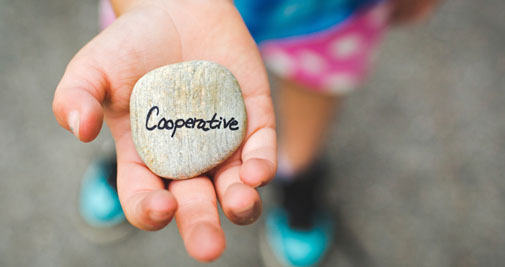Dana Rosenbloom, M.S. Ed., Founder, Dana’s Kids Learn the basics for building emotional intelligence with children (toddlers-10 years old). Identifying and Understanding that emotions come in different sizes Tools for Managing those emotions and building resiliency, and Strategies to Support your child in the process.
Positive Discipline

Positive discipline can completely transform the way that you parent. Instead of getting angry or upset, learn how to use specific, positive reinforcement, to discipline your child in a way that respects their needs and developmental abilities. Many parents wonder how to get kids to listen without yelling and how to meaningfully support a child’s ability to make good choices. Here, you’ll discover how to discipline a child in a way that actually works and that leaves you and your child feeling empowered and loved.
Helpful & Hopeful: An Interview with Kaena Clark, MPS, ATR
Kaena Clark, MPS, ATR, Art Therapist and Early Childhood Educator Kaena talks about creativity and connection.
5 Ways To Shift Your Language and Improve Your Young Child’s Behavior, Fast!
In this audio, Dana discusses the importance of messages we give to children, both spoken and unspoken and how, with a few minor tweaks to our communication, we can give clearer messaging to kids. When kids understand what the expectations are and where there is some room for negotiation, they feel safe and secure. These Read More
Helpful & Hopeful: An Interview with Loren Norman, OT
Loren Norman, OT Learn how you can meet your family’s individual sensory needs to stay calm, organized and regulated without leaving your home.
Helpful & Hopeful: Dana Talks About Big Emotions
Dana Rosenbloom, M.S. Ed., Founder, Dana’s Kids Responding to big emotions and behavioral challenges emerging as a result of COVID and quarantine.
Helpful & Hopeful: An Interview with Dr. Alexandra Barnett Ph.D.
Dr. Alexandra Barnett Ph.D. Dr. Barnett offers tools that promote routine, flexibility, and grounding, and discusses developmental regression you may be seeing. Learn how you can meet your child’s needs to feel a greater sense of connection and control.
Getting Kids to Listen & Comply: 5 Helpful Tips
I hear theses phrases a lot from parents. “Why won’t my kid listen?” or “How can I get my child to listen to me?” Typically, my first response is, “Do you want him to listen or to comply?” Because often, children are listening to what their grown ups are saying. For better and for worse. But do Read More
A Case Against Time-Out
I believe strongly in giving people the benefit of the doubt. So when I think about time-out, I’m sure it was created with good intentions. Having a child sit on a spot, in a naughty chair, or on a step, one minute for each year of their age, must have come from someplace good. Both Read More
By Myself!
Coming in a close second after “mine!” on the list of most frequently used toddler phrases is “by myself!” It’s truly exciting when your baby starts exerting her independence, using language, and more actively exploring the world around her. But the world of toddlers and 2s brings with it a new batch of challenges. How Read More
Effective Parenting Begins With Consistency
Effective parenting can be challenging…but it can be done. One key to success is being consistent in your discipline and limit setting. Positive discipline and limit setting looks different for each family. Your child’s needs may not be the same as your friend’s child. Developmentally, the needs of a two year old will differ from Read More
